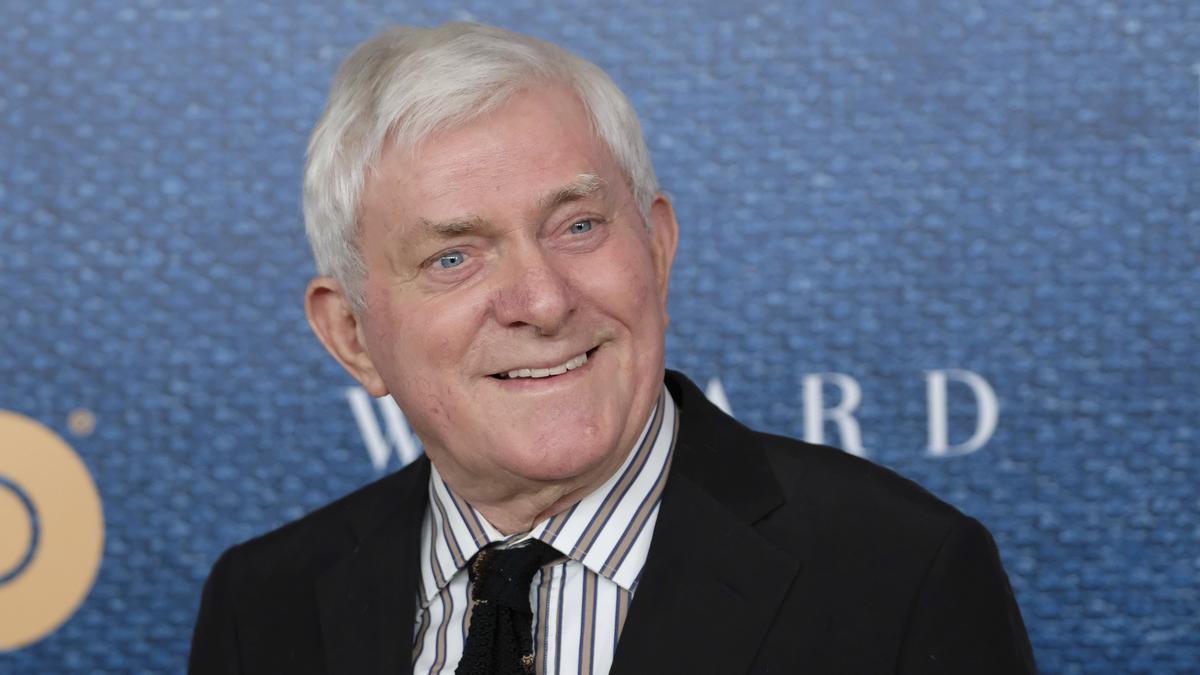
Phil Donahue, the trailblazing host whose innovative daytime talk show left an indelible mark on television and paved the way for hosts like Oprah Winfrey, Montel Williams, and Ellen DeGeneres, has died at the age of 88. NBC’s “Today” show reported that Donahue passed away on Sunday after battling a long illness, as confirmed by his family.
Bestowed with the moniker “the king of daytime talk,” Donahue was the first television host to integrate audience participation in his talk show format, inviting viewer engagement in discussions that spanned a full hour with a single guest. This engaging approach set “The Phil Donahue Show” apart from other programs of the 1960s, endearing it especially to female audiences.
“The Phil Donahue Show,” later known simply as “Donahue,” made its debut in Dayton, Ohio, in 1967. From the onset, Donahue demonstrated a bold readiness to tackle controversial social issues, featuring atheist Madalyn Murray O’Hair as his first guest. Throughout its run, the show delved into topics ranging from feminism, homosexuality, and civil rights to consumer protection, offering a platform for a wide array of societal debates.
In a memorable appearance in 1989, Donahue hosted former First Lady Nancy Reagan to discuss her book “My Turn.” This was just one instance of the influential personalities who graced the show.
Syndicated in 1970, “Donahue” maintained a prominent presence on national television for 26 years, earning 20 Emmy Awards and a Peabody Award in 1980. In a testament to his impact, President Joe Biden awarded Donahue the Presidential Medal of Freedom in May, recognizing him as a pioneer of daytime television.
The inclusion of radio-style call-ins became a trademark of the show, with Donahue’s recognizable query, “Is the caller there?” solidifying a unique viewer-host interaction. His final episode aired in 1996, marking the end of an era in New York, where Donahue resided with his wife, actor Marlo Thomas. The couple married in 1980, after meeting on his show three years earlier—a meeting that sparked immediate and visible affection.
Beyond his signature show, Donahue briefly returned to television in 2002 with another iteration of “Donahue” on MSNBC. However, the show was short-lived, canceled after six months due to political undertones revealed in leaked emails despite initial ratings claims.
A native of Cleveland, Phillip John Donahue was born on December 21, 1935. He graduated from St. Edward High School in 1953 and later earned a business administration degree from the University of Notre Dame in 1957.
. Though he eventually distanced himself from the church, he fondly referenced the enduring presence of his faith in his memoir, “Donahue, My Own Story.”
Donahue’s career began with various roles in radio and TV before moving his earlier radio talk show to Dayton’s WLWD television station in 1967. The show later relocated to Chicago in 1974 and eventually settled in New York.
His revolutionary format relied heavily on improvisation due to the unavailability of typical talk-show guests in Dayton. This necessity-driven style blossomed into the distinctive and winning format that propelled “Donahue” to the zenith of daytime talk shows.
His amiable demeanor, accompanied by his recognizable salt-and-pepper hair, made Donahue a household name. He engaged in memorable interactions with a wide range of guests, from boxing with Muhammad Ali to playing football with Alice Cooper. His show addressed diverse topics, from breakdancing and cooking lessons to highly controversial subjects like “mansharing,” lesbian motherhood, and even natural childbirth and abortion, often aided by video segments that sometimes led to city bans.
“Donahue” became a crucial stop for notable personalities, including politicians, activists, athletes, and entertainers like Hubert Humphrey, Ronald Reagan, Gloria Steinem, and Farrah Fawcett.
In addition to his talk show, Donahue co-hosted with Soviet journalist Vladimir Posner a pioneering television discussion series during the Cold War. Dubbed the U.S.-Soviet Bridge, it enabled real-time interactions between studio audiences in the U.S. and the Soviet Union. Their collaboration extended into the 1990s with a weekly roundtable show, Posner/Donahue, on CNBC.
Donahue also ventured into filmmaking, co-directing the 2006 documentary “Body of War,” which earned an Oscar nomination.
Phil Donahue’s legacy as an innovator in daytime television is enduring. His willingness to push the boundaries of traditional talk show formats has left a lasting impact on the industry and on the many viewers who tuned in daily to be a part of his groundbreaking conversations.












